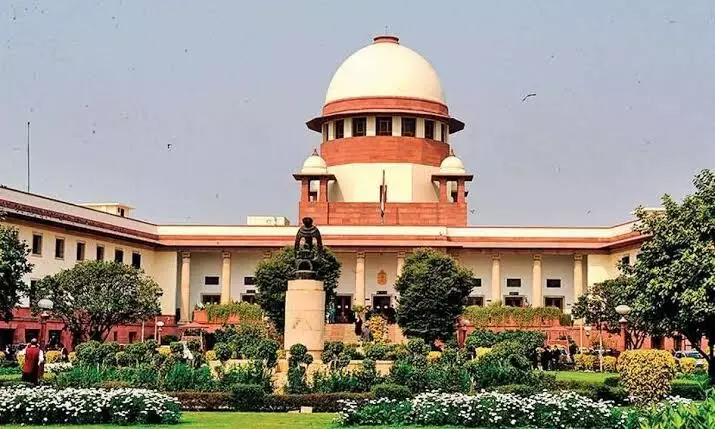
Unmarried partners, queer relationships to be considered as family': Supreme Court
text_fieldsNew Delhi: The Supreme Court has observed that "familial relationships may take the form of domestic, unmarried partnerships or queer relationships" while noting that an "atypical" manifestation of a family unit is as real as its traditional counterpart and deserves protection under the law.
The predominant understanding of the concept of a "family" both in the law and in society is that "it consists of a single, unchanging unit with a mother and a father (who remain constant over time) and their children," according to PTI report.
A bench of Justices DY Chandrachud and AS Bopanna said in an order uploaded on Sunday, "this assumption ignores both, the many circumstances which may lead to a change in one's familial structure, and the fact that many families do not conform to this expectation, to begin with. Familial relationships may take the form of domestic, unmarried partnerships, or queer relationships.
The observations are significant as activists have been raising the issue of recognizing LGBT marriages and civil unions as well as allowing live-in couples to adopt after the apex court decriminalized homosexuality in 2018.
The apex court made the remarks in its verdict that held that a working woman cannot be denied her statutory right to maternity leave for her biological child only because her husband has two children from a previous marriage and she had availed the leave to take care of one of them.
The bench said that a household may be a single-parent household for any number of reasons, including the death of a spouse, separation, or divorce.
"Similarly, the guardians and caretakers (who traditionally occupy the roles of the "mother" and the "father") of children may change with remarriage, adoption, or fostering,'' it said.
It said that these manifestations of love and families may not be typical but they are as real as their traditional counterparts and such atypical manifestations of the family unit are equally deserving not only of protection under the law but also of the benefits available under social welfare legislation.
"The grant of maternity leave under Rules of 1972 is intended to facilitate the continuance of women in the workplace. It is a harsh reality that for such provisions, many women would be compelled by social circumstances to give up work on the birth of a child, if they are not granted leave and other facilitative measures" it said.
It added that no employer can perceive childbirth as detracting from the purpose of employment and childbirth has to be construed in the context of employment as a natural incident of life and hence, the provisions for maternity leave must be construed in that perspective.
It said that the facts of the present case indicate that the spouse of the appellant (a nurse by profession) had a prior marriage that had ended as a result of the death of his wife after which she married him.
"The fact that the appellant's spouse had two biological children from his first marriage would not impinge upon the entitlement of the appellant to avail maternity leave for her sole biological child.
The bench said that gendered roles assigned to women and societal expectations mean that women are always pressed to take a disproportionate burden of childcare work.
The judgment, with its observation that the law must not disadvantage women who take on the role of motherhood in ways different from the popular imagination, also opens the doors for legal rights for women who avail of surrogacy, adoption, or assisted reproductive technologies.


















